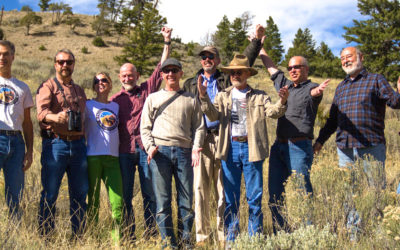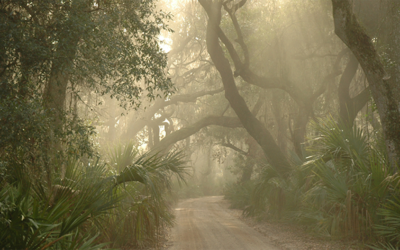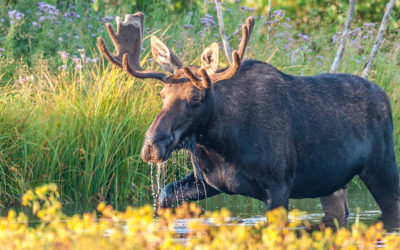Photo credit © Michael Walk
What We Have and What We Need
Editorial Perspectives
December 2020 | Volume 26, Number 3
Well.
As we reach the end of the 26th volume of the International Journal of Wilderness, it is worthwhile to reflect on this year that was 2020. It has been a time of unpredictability with the global pandemic and COVID-19. We have experienced social and political unrest at a wide scale. And for many, it has been a year filled with uncertainty, stress, and loss. Hearing the term “unprecedented” is beginning to lose its meaning.
But, 2020 has also provided the opportunity for us to reflect and reevaluate what we need as humans, society, and a planet. We need community, where we are not isolated, but instead partnering and striving for a positive future. We need innovation, where new ideas and enthusiasm allow us to address climate destabilization and the conservation of nature with a broad and diverse constituency. And we need a planet where nature is valued for itself, and where the interface of society and nature is considered with humility and restraint.
While there is a great need, there is much that we have. We have been given the opportunity to change the pace of society, gaining time that allows us to consider our values and priorities. We have been given the opportunity to reengage with our neighbors, understand our community, and volunteer our time and resources for positive change. And we have been given the opportunity to unplug, slow down, and find solace and solitude in the wonderous places that so many of us have committed to preserve and protect. So, while the need is great, we may have gained what was necessary to discover the best way forward.
This issue marks the retirement of Dr. Alan Watson from the IJW Editorial Board. Throughout the past 25 years, Alan has been an integral part of the journal’s growth and development. He has championed its mission and influence amongst wilderness stewards, practitioners, and advocates. He has mentored many neophyte scholars and scientists to share their work in a meaningful way (including my first published manuscript in the December 2007 issue). And he has been a constant advocate for partnerships, connecting international scientists and managers across a multitude of protected areas and wilderness. Thank you, Alan, for all your passion and enthusiasm. We wish you the best as you continue exploring our wild places.
We would also like to take the opportunity to welcome Dr. Christopher Armatas to the IJW Editorial Board. Chris joined the Aldo Leopold Wilderness Research Institute as a social scientist in March 2020. As a new member of the Editorial Board, Chris hopes to contribute with his research background focused on wildlands management and planning through an interdisciplinary, social-ecological systems lens. More specifically, his research includes qualitative and quantitative approaches to understanding how human well-being is supported by the variety of benefits flowing from our public lands, social vulnerability to environmental and land use change, and methods for integrating science into public engagement efforts for large planning processes. Chris’s desire to work in support of effective stewardship of wilderness and wildlands stems from years spent working on the Yellowstone River and exploring the wild places surrounding Yellowstone National Park. We are very excited to have Chris as part of IJW.
In this issue of IJW, we remember Michael Soulé and his contributions to conservation. Karen Mudar examines managing cultural resources in wilderness. Tyler Cribbs, Ryan Sharp, Matthew Brownlee, Elizabeth Perry, and Jessica Fefer investigate solitude for wilderness and nonwilderness users. And Grant Dixon discusses the implications of tourism on the Tasmanian Highlands.
ROBERT DVORAK is editor in chief of IJW and professor in the Department of Recreation, Parks, and Leisure Services Administration at Central Michigan University; email: dvora1rg@cmich.edu.
Read Next
A Tribute to Michael Soulé
The following is a tribute to the life and contributions of Michael Soulé from several colleagues and friends.
The Preservation Paradox: How to Manage Cultural Resources in Wilderness? An Example from the National Park Service
At the same time that federal agencies must comply with protection measures of the Wilderness Act, federal cultural resource laws require agencies to take into account the effects of federal undertakings on cultural resources.
Good News: Wilderness Is Not a Victim of Our Current Intense Political Partisanship
As for intense political partisanships, it is a fact of life in our politics and will always be. But it need not high-center progress for wilderness.



